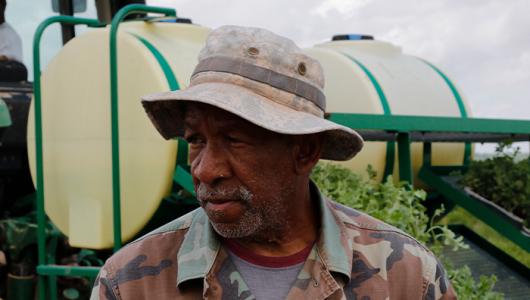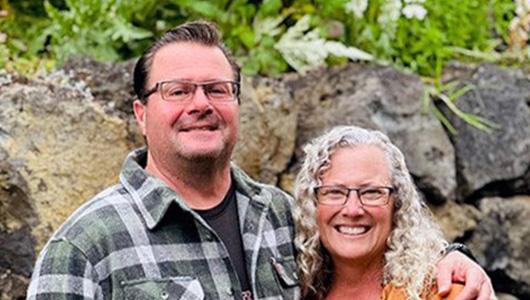Our nation’s farmers and ranchers not only feed the world. One such farmer is Josh Daniels of Dalmatia, Pennsylvania, one of thousands of farmers who received Inflation Reduction Act funding from the U.S. Department of Agriculture (USDA) in fiscal year 2023, which provided an additional $19.5 billion for USDA’s Natural Resources Conservation Service (NRCS) to deliver conservation assistance to producers for certain agriculture and forestry mitigation activities. When applied appropriately, these activities can deliver quantifiable reductions in greenhouse gas emissions and/or increases in carbon sequestration.
Josh has been working with NRCS for years, but the new funding will also enhance sustainability on his farm for years to come.
Josh also expressed his satisfaction with the NRCS application process: “I thought it went smooth,” Josh said, “I got help through the process, and that made it simple.”
With his new NRCS Environmental Quality Incentives Program (EQIP) contract funded by the Inflation Reduction Act, Josh plans to establish field borders to decrease the chances of runoff from reaching the nearby creeks. In addition, he has begun efforts to support and protect pollinators by creating an area of land intentionally set aside and managed to provide a habitat for pollinators like bees, butterflies, and other insects Josh also plans to use the funds to maintain wildlife cover, which will help provide a safe and sheltered place for animals to feed, breed, and find refuge. Finally, he hopes to continue work from his previous NRCS contracts in a sustainable approach to continue benefitting the land passed down to him from his father.
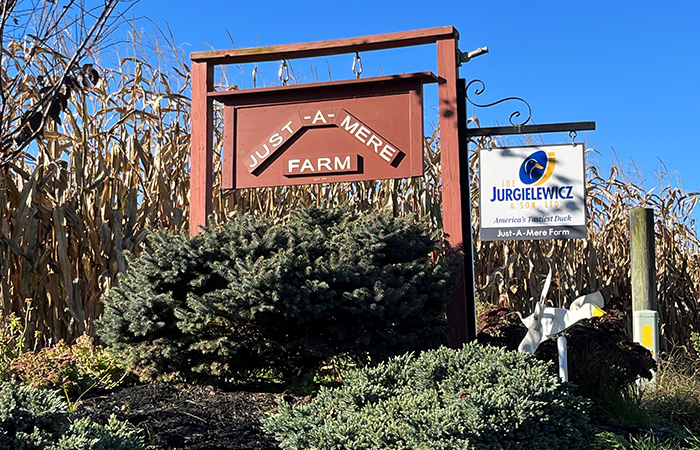
Josh has a lifetime connection to agriculture that was developed from an early age on the family’s Just-a-Mere farm. He joined the Army after graduating from high school in 2000 and spent the next four years deployed to Bosnia and Iraq. When he separated from the Army, as the saying goes, “the farm called him home.”
Josh’s next step was partnering with his father, Richard Daniels, to focus on sustainable stewardship efforts, and NRCS helped them take steps to achieve that.
"When I came home [from the service], we started cover cropping,” said Josh. “Through NRCS, we tried multi-species cover crops, then we went to roll out cover crops [a no-till technique] when we went to plant.”
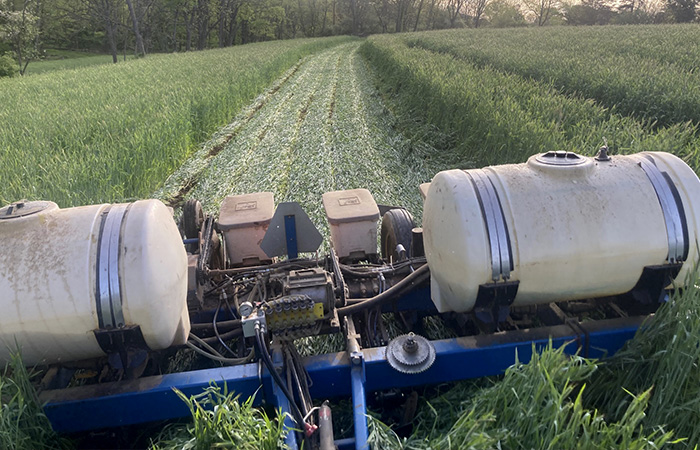
Father and son worked together to cultivate a thriving farm enterprise of corn and soybean production, quality hay and a small beef herd. They also began a commercial duck operation, which now produces 225,000 ducks annually.
Josh became the farm’s sole owner in 2014, and he is continuing his dad’s farming legacy.
NRCS came into the picture again when Josh was looking to improve water infiltration into the soil and to explore conservation practices that helped grow organic matter and retain nutrients. He received funding for this through a now-completed five-year EQIP contract, and in a renewal EQIP application Josh added additional conservation projects and practices, installing cattle crossing to strategically limit access to a stream and a storage facility for nutrient-rich dry litter manure.
Josh and his family have seen significant changes on the farm while partnering with NRCS over the years, including improved water quality and reduced manure leaching into the stream and property’s groundwater. They also noticed cleaner water from planting a buffer strip next to a stream and have reached their goals of improved soil quality through cover crops, which built organic matter, improved nutrient cycling, and reduced the amount of commercial fertilizer applied to fields.
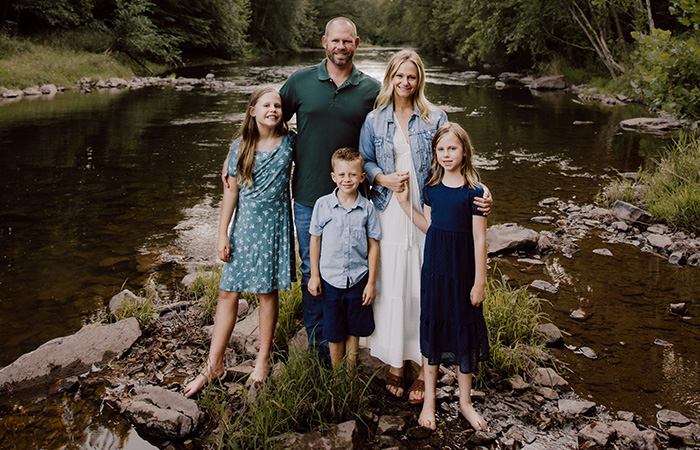
Josh says collaborating with NRCS has been a valuable investment and helpful in many ways.
“The process is straightforward, and you get helpful guidance in addressing specific areas of concern,” he said, adding, “I believe it’s helped me try new things; helped me grow because I’m willing to try new things.”
Josh looks forward to the long-lasting results he anticipates from the new Inflation Reduction Act-funded conservation projects that will soon begin.
“Grass strips and pollinators are taking the carbon dioxide and putting it into the soil, so it’s helping. By not tilling, we are not releasing carbon dioxide. The cover crops help get the carbon down into the soil,” Josh said. “The more we can grow green and not disturb the soil, the better.”
Lauren White is a public affairs assistant for NRCS in Pennsylvania

